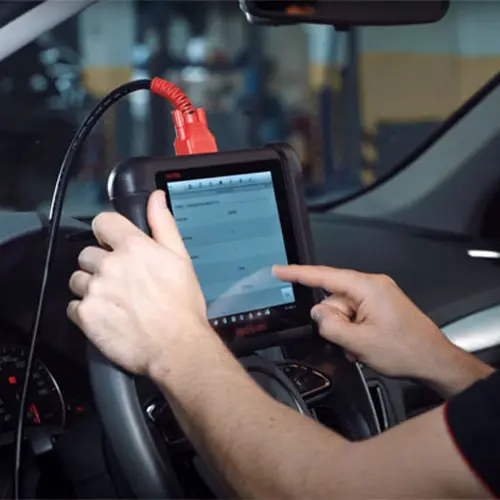5 Killer Quora Answers To Broken Key Repair
페이지 정보

본문
Broken Key Repair: Solutions for Common Lock Issues
Introduction
Keys are important tools in our everyday lives, permitting us to protect our homes, automobiles, and individual valuables. Nevertheless, they can also break, leading to aggravations and hassles. Understanding how to address broken key issues is crucial for anybody desiring to preserve their locks and guarantee access to their property. This short article covers various elements of broken key repair, including common causes, repair approaches, and preventive procedures to prevent future instances.
Typical Causes of Broken Keys
Keys can break for a number of factors. Comprehending these causes can help in avoiding future occurrences:
- Wear and Tear: Over time, keys can wear down due to regular usage, leading to weakened shafts that are more most likely to break.
- Poor Key Design: Keys that are poorly developed might lack structural integrity, making them more susceptible to breaking under stress.
- Inaccurate Key Usage: Using excessive force to turn a key, particularly in a jammed lock, can easily lead to a breakage.
- Environmental Factors: Extreme temperature levels or exposure to wetness can weaken metal keys, resulting in brittleness.
- Lock Malfunctions: A malfunctioning lock can position undue tension on a key, triggering it to snap during operation.
Indications of a Broken Key
Determining a broken key often comes with apparent signs. Here are some signs:
- Partial insertion into the lock: If the key can not be totally inserted or removed.
- Sudden resistance: If the key feels stuck when being turned.
- Noticeable splits or fractures: Inspecting the key can expose cracks or breaks in the metal.
- Incomplete engagement: The key may turn less than required to actuate the lock.
Techniques for Broken Key Repair
When faced with a broken key, there are a number of techniques to think about for repair. It is necessary to pick the right one based on your specific scenario.
1. Get Rid Of the Broken Key
If a key breaks within a lock, the very first action is to eliminate the broken part:
- Use tweezers or needle-nose pliers: If a piece is standing out of the lock, gently pull it out.
- Place a key extractor tool: This specialized tool can assist extract lodged parts more efficiently.
| Tool | Finest Used For |
|---|---|
| Tweezers | Shallow extraction |
| Key extractor tool | Deeply lodged key pieces |
| Lubricant spray | Alleviating extraction of stuck parts |
2. Superglue Method
For scenarios where a key has actually partially broken however is intact enough to remain gripped, the superglue technique might use a momentary fix.
- Clean the broken surface areas thoroughly.
- Apply a thin layer of superglue.
- Hold the pieces together for a few minutes up until the glue sets.
Note: This approach is not an irreversible option and should be used with caution as the repair can easily fail under functional stress.
3. Metal Epoxy
For a more robust repair, metal epoxy offers a stronger bond than superglue.
- Follow the instructions on the epoxy product packaging for preparing the adhesive.
- Apply to the broken area and hold until set (usually a couple of hours).
4. Duplicate the Key
In instances where lock performance is important, creating a duplicate key is frequently the finest path:
- Visit a locksmith: Many locksmith professionals can duplicate keys rapidly and efficiently.
- Use a key-tracing service: Some locksmith professionals use tracing methods to cut an identical key based on the residues.
5. Lock Replacement
When keys consistently break, it might be because of lock concerns rather than key integrity. In such cases:
- Consult a locksmith to examine the lock's condition.
- Consider replacing the lock totally if considerable damage or wear appears.
Avoiding Key Breakage
Preventing key damage is frequently better than repair. Here are some useful tips:
- Limit force on keys: Always turn keys carefully to avoid unnecessary tension.
- Regular key evaluation: Check for wear and replace keys revealing signs of damage.
- Use a keychain: Prevent extreme bending by utilizing a durable keychain.
- Oil locks: Ensure locks operate efficiently to minimize pressure on keys.
- Store keys appropriately: Avoid placing type in environments that can trigger rust or corrosion.
FAQs About Broken Key Repair
1. Can I repair a broken key myself?
Yes, you can try to repair a broken key yourself using techniques like the superglue or metal epoxy strategies. However, these are temporary repairs, and it is a good idea to speak with a professional locksmith for a more resilient service.
2. Is it worth repairing a broken key?
In some cases, especially with emotional or distinct keys, a repair may deserve it. For standard keys, duplication or replacement is normally more efficient and reputable.
3. How can I prevent my keys from breaking?
To prevent breakage, ensure that keys are exempt to excessive force, regularly check them for wear, and keep locks well-maintained.
4. When should I seek a locksmith's aid?
If you are not able to eliminate a broken key from a lock or if the lock breakdowns often, it's finest to look for a locksmith's know-how.
Broken keys can provide a substantial inconvenience, but they are workable with the ideal approach. By comprehending the typical causes and readily available repair techniques, individuals can respond efficiently to key damage. Drawing from preventive procedures will likewise assist preserve key stability and functionality. Ultimately, a proactive technique to key and lock maintenance can considerably decrease the frequency of these bothersome concerns.

- 이전글Revolutionize Your High Steaks Poker With These Easy-peasy Tips 25.07.12
- 다음글Do You Need A Poker Online? 25.07.12
댓글목록
등록된 댓글이 없습니다.
